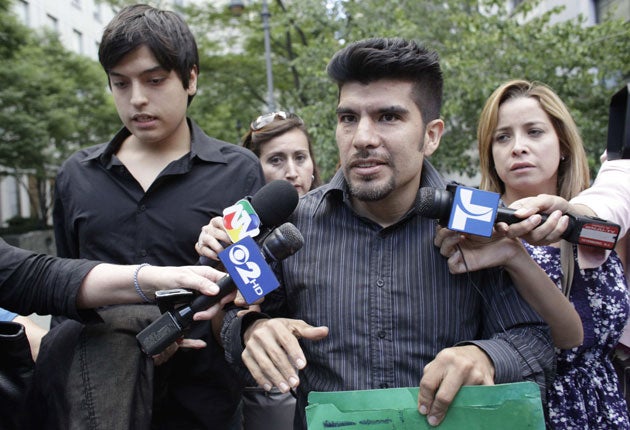Uncertain future for children of Russian spies
After spending their lives as unsuspecting Americans, they now face the prospect of being sent to a country they have never known

As new details emerge of the secret White House manoeuvrings which led to Friday's exchange of spies, a very Russian question remains. The children – what is to be done?
Their parents are now acclimatising in a country some of them have not seen for 15 years or more, and where they are not exactly getting heroes' welcomes. But the really affecting predicament is that of their offspring. Their parents chose to do what they did, but the children were not only unaware of their activities but also of the real identities of their parents. Until the arrests late last month, a life in professional American families was theirs. Suddenly – with the prospect of being transplanted to Russia as the children of sinecured but failed agents – their worlds have been turned inside out.
It will be easiest for the youngest – the one-year-old and three-year-old children of Mikhail Kutzik, alias Michael Zottoli and Natalia Pereverzeva, alias Patricia Mills, known in the court documents as the "Seattle conspirators", who recently moved to Arlington, Virginia. Unconfirmed reports say these two, who have been staying with family friends, will soon be flown to Moscow.
Matters will be more complex for Katie, 11, and Lisa, seven, the daughters of Vladimir and Lydia Guryev, alias Richard and Cynthia Murphy, known as the "New Jersey conspirators". The two girls will probably be taken to Moscow, where home will be an apartment in a strange country.
The older offspring, who are not only able to grasp the deceit practised upon them but also feel betrayed by it, may well remain in the US. Andrei Bezrukov and Elena Vavilova, alias Donald Heathfield and Tracey Foley, known as the "Boston conspirators", have two sons: one, 20, is at George Washington University, and the other, 16, attends a private high school in Boston. And then there is Juan, the 17-year-old son of Mikhail Vasenkov, alias Juan Lazaro, and Peruvian journalist Vicky Pelaez. He has a stepbrother Waldo Mariscal, 38, an architect who told journalists late Friday that he didn't know where he and his brother would end up living, though he said the teenager wanted to stay in the US.
He acknowledged the family would lose its home, since it was paid for by the Russians, but added: "My parents paid for this house with their sacrifices since 1995." A lawyer for the father noted that the sons had no income. "It's very upsetting. They don't know what to do next," said Genesis Peduto. "Are we going to reunite?" Mr Mariscal said outside the home. "Yes. We have a nice adobe house in Peru that my mother built little by little."
Meanwhile, it emerged in Washington that the spy swap idea was Washington's, first raised with President Barack Obama nearly a month ago by FBI and Justice Department officials who had been watching the 10 Russian agents for more than a decade. They informed the President it was time to start planning their arrests, according to two White House officials, who spoke on condition of anonymity.
What was known as "the illegals program" had been first brought to the White House's attention in February. The timing of the arrests was deliberated with Mr Obama on 11 June, but, said a separate US official, the arrests were not planned to facilitate such a trade. Thirteen days later, Mr Obama hosted Russian President Dmitry Medvedev at the White House. But transparency goes only so far. Though the arrests would take place just three days later, Mr Obama kept quiet.
At that point, White House aides and their counterparts from several agencies, including the CIA, FBI, Justice and the State Department, were meeting every morning via secure video conference. Shortly after the 27 June arrests, CIA director Leon Panetta provided Russia's spy chief, Mikhail Fradkov, with the names of four prisoners being held in Russia that the US wanted to free, the officials said.
By last Saturday, the deal was agreed. Russia required signed confessions from the four to make way for pardons from Mr Medvedev, and plea deals were arranged in the US for the Russians. It was, by any standards, a win for the US – four high-profile characters in exchange for 10 nobodies who, in the words of one intelligence expert, "couldn't shoot straight".
Join our commenting forum
Join thought-provoking conversations, follow other Independent readers and see their replies
Comments
Bookmark popover
Removed from bookmarks